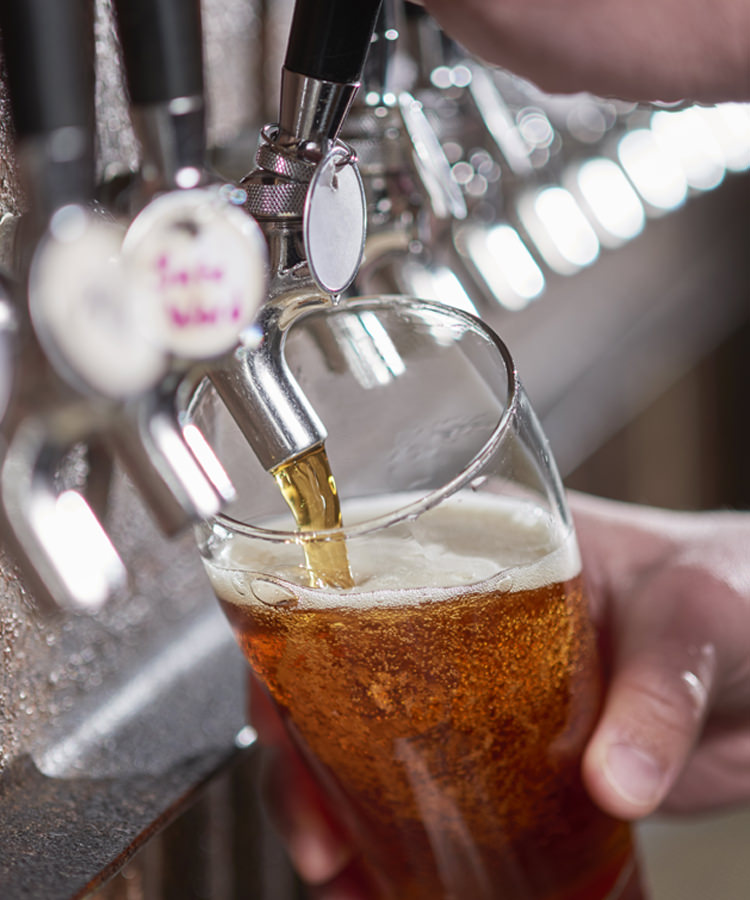The backlash against macro-owned craft beer shows no signs of slowing down. Now, thanks to the Brewers Association’s efforts, many restaurants are choosing to stop selling beers that don’t fit BA’s definition of craft. (Namely: a small, traditional brewery that is at least 75 percent independently owned.)
This week, The Washington Post reported Washington, D.C. restaurant chain Pizzeria Paradiso will remove all non-craft beers as soon as its remaining kegs kick. That means no more Founders, no more Anchor Steam, and definitely no more AB InBev-owned Wicked Weed.
Beer director Drew McCormick tells The Post that removing these beers is “a business decision. In the broadest sense, it comes from the broadest Paradiso ethos: Purchasing food from local farmers, purchasing through local distributors, and trying to support small, local, independent vendors when we can.”
It makes sense in theory for establishments like Paradiso to support small and local. The problem is, many of these brands — absent those fully owned by AB InBev — can make a legitimate case for being craft. Founder’s, for example, sold 30 percent of its company to Mahou, Spain’s largest brewer, and is now not considered a craft beer. But how is that different from Brooklyn Brewery selling 24.5 percent of its company to Kirin? Or Dogfish Head selling 15 percent of its company to a private equity firm?
The only difference here is that the Brewers Association has set the maximum percentage threshold that anyone can sell of their company at 25 percent. Sell any more than this and you aren’t craft. Pretty arbitrary, if you ask me. That’s a tricky conversation Ms. McCormick might wind up having with customers, no matter how much she tells The Post she’s looking forward to it.
Will this continued campaign by the Brewers Association yield positive results, such as restaurants removing beers they don’t define as being craft? Or, in the long run, might the definitions become so muddied that the campaign begins to look petty? I am all for supporting small and local, and often prefer those beers; but for the war on macro to truly be a war, there shouldn’t be so many caveats. It starts to seem hypocritical.
Is Dixie Beer the New PBR?
Dixie isn’t a label the beer geeks tend to enjoy — seriously, it’s rated abysmally on well-known review sites — but its 110-year-old history gives it a rabid following. Thanks to that history, and the fact that new owner Tom Benson (who also owns the New Orleans Saints and Pelicans) restored the beer’s original formula, Dixie is going national. While the label isn’t considered “craft” by those who determine such things, it is local. The company hopes its NOLA connection is all it needs to become the next Shiner Bock or PBR.
Since its reformulation and purchase by Benson, the brand has exploded across New Orleans. There are plans to build a brewery to manufacture the beer in the city as well, since it’s currently brewed in Memphis. While it may not be craft, I’d say a 110-year-old history is pretty legit. I anticipate it doing quite well.
Beer is headed to the Final Four
In October the NCAA finally rescinded a rule that barred beer and wine sales from NCAA postseason events. That means the Final Four is about to get beer sales, as reported a few days ago. The decision comes following a pilot program last year that was successful and also probably pretty lucrative; while we may not pay our student athletes what they deserve, the NCAA certainly knows how to make money for itself.
Here’s hoping that with the inclusion of beer at these games also comes the inclusion of good, quality beer. Though who are we kidding? The beer poured is most likely going to be owned by one of two companies, since they have the deep pockets to pay for the sponsorship the NCAA will probably require to pour their suds in the first place. Maybe the Brewers Association’s war on macro does have a point after all…
